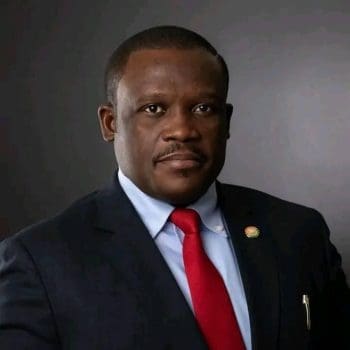Minority demands probe into AT–Telecel consolidation plan

The Minority in Parliament has mounted a fierce opposition to the proposed merger between Telecel Ghana and AT Ghana (formerly AirtelTigo), saying it threatens Ghana’s national interest, jobs, and the integrity of the telecommunications industry.
Their rejection of the deal, announced at a press briefing in Accra, has set off a heated debate about transparency, competition, and the stewardship of state assets in the digital economy.
From the onset, the Minority’s position has been uncompromising. They insist that the deal, in whatever form it takes — whether a merger, acquisition, or absorption — must be stopped immediately.
In their words, “We unequivocally object to any deal with Telecel by way of merger, absorption, acquisition, or whatever term the minister seeks to place on such an unholy alliance.”
They argue that the proposed transaction is not in Ghana’s economic interest, describing it as technically weak, operationally questionable, and financially unconscionable.
To them, the move signals a backdoor attempt to hand over a strategic national asset to a private entity under dubious terms.
Their skepticism is rooted in Telecel’s own record. When the company acquired Vodafone Ghana, it had promised to inject some $500 million into network expansion and service upgrades.
The Minority contends that this pledge never materialized. They fear that a similar pattern could repeat with AT Ghana, leaving the company gutted and the state poorer.
“Whatever fate befell Vodafone shall befall AT should the government agree to this merger,” the group warned.
The Minority said Telecel’s reported indebtedness of more than $400 million, in their view, makes the deal untenable.
Over 3m AT subscribers
For the Minority, the risk is not abstract. They noted that AT Ghana’s customer base — more than three million subscribers — makes it a valuable strategic asset that Telecel appears eager to acquire without making a proportionate investment.
By absorbing AT’s market share, Telecel would expand its customer count to over 8 million, cementing its market dominance while reducing competition.
In effect, the merger would tilt the sector toward a duopoly dominated by MTN and Telecel.
The Minority has, therefore, demanded a complete suspension of the transaction, calling for a full parliamentary inquiry into the circumstances surrounding it.
They argue that any decision on the future of AT Ghana must be made through transparent processes, with the people of Ghana fully informed of the details.
Parliament, they insist, must summon all key stakeholders — including the Ministry of Communications and Digitalisation, the Ghana Investment Fund for Electronic Communications (GIFEC), the National Communications Authority (NCA), and AT Ghana’s management — to testify and provide documentation on how the merger was conceived and approved.
At the heart of their objections is the claim that the Ministry has failed to provide a full disclosure of documents, valuation reports, or transactional advisor recommendations that justify the alleged decision to abandon the previously endorsed Afritel–Rektron proposal.
The Minority has insisted that these documents must be made public, arguing that without such disclosure, the process reeks of secrecy and political manipulation.
They maintain that the earlier Rektron proposal, which was approved under the Ministry’s supervision and vetted by KPMG was more viable, transparent, and beneficial to the country.
The Rektron proposal, according to the Minority, was grounded in clear financial commitments.
$150m Rektron offer for 60% of AT
It included an immediate investment of $150 million for recapitalisation, with a longer-term projection of up to US$1 billion within five years.
They note that Deloitte in 2022 had recommended Rektron among the top three potential partners — alongside Hannam & Partners and Celsation — when the government first sought private investment for AT.
By comparison, they argue, Telecel’s offer is financially shallow, limited to a proposed $50 million network upgrade that cannot sustain AT’s competitiveness or expansion.
The Minority accused the Minister of Communications and Digitalisation of flip-flopping on policy positions and acting without due diligence.
They said between May and September 2025, the government’s stance on AT Ghana shifted dramatically — first announcing a partnership with Rektron, then commissioning KPMG as a transactional advisor to assess the proposal, and finally abandoning it altogether in favour of a reported merger with Telecel.
The Minister came back to say there was no merger.
In their view, such policy instability has eroded confidence among stakeholders and raised suspicions about the true intent of the merger.
The Minority’s account of events traces a pattern of contradictions.
On May 21, 2025, the Ministry signed a Memorandum of Understanding (MOU) granting Rektron 60% ownership of AT Ghana, with the government retaining 40%.
A few days later, the Minister publicly confirmed that a strategic investor had been secured and promised that final results would be announced within 60 days.
Then, on July 3, 2025, the Minister disclosed that KPMG had been appointed as the transactional advisor with 28 days to review the proposal.
However, when the advisory period expired, there was no report or parliamentary update.
The Minority has described these sudden policy reversals as “an embarrassing case of administrative confusion and economic recklessness.”
They point out that the Minister’s subsequent justifications — including a claim that Ghana’s telecom policy now supports a duopoly structure — make little sense.
According to them, consolidating two operators to create a duopoly only serves private interests, not consumers or national development.
They accuse the Minister of “using policy as a fig leaf to mask a politically engineered takeover.”
The controversy has been compounded by the handling of AT Ghana’s debt to the American Tower Company (ATC), its primary tower infrastructure provider.
The Minority recalls that during a meeting in mid-2025, the Minister promised to pay $5 million toward AT’s GH₵1.5 billion debt to ATC to avert a network shutdown.
When that payment failed to materialise, ATC withdrew its services, leading to widespread network disruptions.
To cushion the impact, the Ministry authorised AT customers to roam on Telecel’s network from September 1, 2025 — a move that, according to the Minority, caused AT to lose anestimated GH₵7 million in revenue.
Just two days later, on September 3, the Minister allegedly informed AT’s staff that the Rektron partnership had been terminated and that Telecel would be the new strategic partner.
The Minority interprets this sequence as premeditated — a deliberate weakening of AT to justify a forced merger.
Beyond the financial and policy arguments, the Minority’s strongest appeal is anchored in the human and social dimensions of the controversy.
AT Ghana currently employs about 300 full-time staff and 200 contract workers, while supporting over 10,000 indirect jobs through its vendors, distributors, and mobile money agents.
The Minority argued that these livelihoods are now in jeopardy. They insist that no binding commitment has been made by Telecel to retain AT’s workers, honour existing contracts, or protect vendor relationships.
$50m World Bank project to benefit AT
The Minority also warns that the merger could jeopardise Ghana’s ongoing Digital Infrastructure Venture (DIV) Project — a $50 million World Bank-funded initiative designed to expand high-speed internet connectivity to more than 900 government offices, hospitals, police stations, and schools.
AT Ghana’s network is a critical component of this project, serving as the backbone for its connectivity infrastructure.
Any disruption to AT’s network, they argued, could cripple the project and reverse years of progress in digital inclusion.
Transparency and the rule of law
At the heart of the debate is also a concern about transparency and the rule of law.
The Minority believes that the Communications Ministry has operated with opacity, excluding Parliament and the public from meaningful participation.
They allege that key documents, including valuation reports and legal opinions, are being concealed.
They have demanded that Parliament summon the Minister, the National Communications Authority, and officials of Telecel to testify under oath.
They also called for an independent audit of AT’s financials, particularly its liabilities with ATC, to determine the company’s true condition before any transaction is approved.
In their statement, the Minority criticised the Minister’s subsequent attempt to deny that any merger talks were ongoing.
They pointed to public announcements, including one issued on September 3 and another on the Ministry’s website — both later deleted — which confirmed that a Telecel–AT consolidation was under consideration.
The later denials, they argued, were an attempt to defuse public outrage after the policy’s flaws were exposed.
They describe the deletions of official social media posts and online reports as “a coordinated effort to erase the paper trail of a bad decision.”
Throughout their engagement, the Minority has drawn a clear contrast between what they see as a deliberate attempt to hand over state assets and what they believe is the proper course: a transparent, locally anchored partnership that retains public control and promotes national development.
They insist that the Rektron model remains Ghana’s best option — a plan that would have preserved government ownership, attracted credible investment, and created thousands of jobs without undermining competition.
To them, the ongoing Telecel process is not just about a telecom merger; it is about the erosion of public accountability and the commodification of a national institution.
They argued that the government must not repeat the mistakes of the past, where national assets such as Ghana Telecom and Vodafone were sold under opaque circumstances, only to result in job losses, foreign control, and diminished national leverage in critical sectors.
By the end of their statement, the Minority left no doubt about their determination.
They reaffirmed their complete opposition to the Telecel–AT merger, their support for AT’s workforce, and their call for a parliamentary probe.


